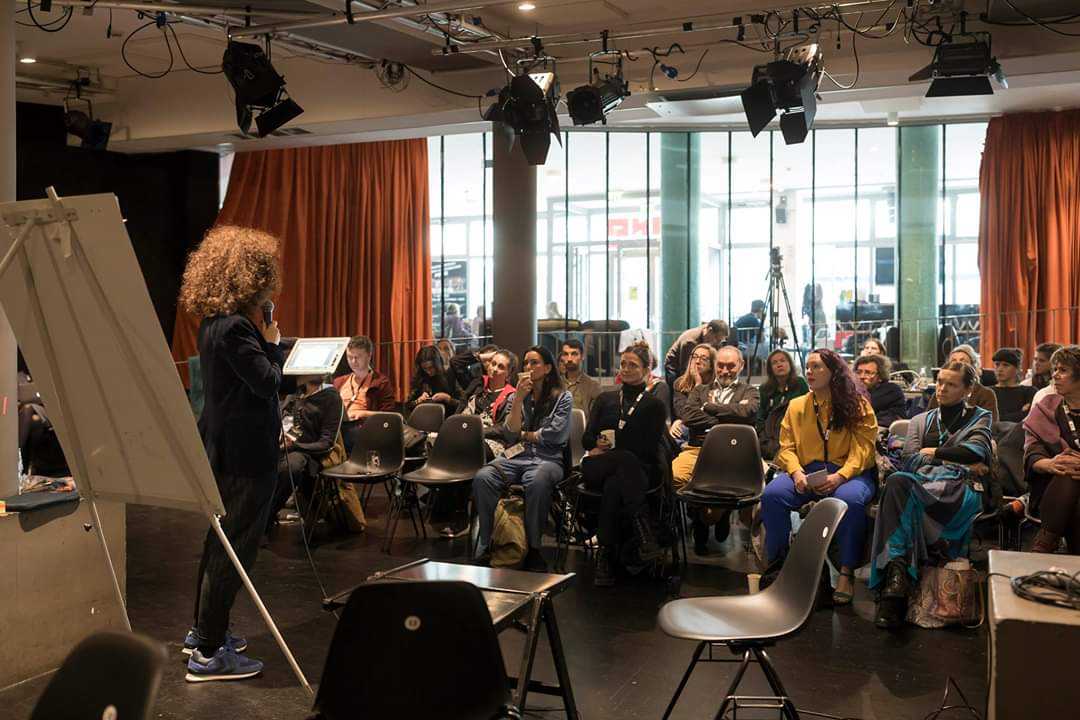International conference on residences in South-Eastern Europe, hosted numerous practitioners, producers, as well as representatives of the cities across Europe: Belgrade, Budapest, Graz, Athens. Rijeka. Ljubljana, Sofia, Burgas, Skopje, Zagreb, Timişoara and Cluj, and among others, Novi Sad. The aim of the conference was to create network of residences in the field of contemporary performance arts in the region of South-Eastern Europe,
The meeting was organised by the ‘Nomad’ Dance Academy, in partnership with the city of Ljubljana and Kino Šiška Centre for Urban Culture.
Participants of the conference agreed that there is a great need for the formation of regional network of cities and organisations in the field of contemporary performance art, and the conference was a concrete step in that regard.
Violeta Đerković, coordinator of the Svilara Cultural Station, presented the concept of decentralisation and participation of citizens in cultural activities that is being developed by the ‘Novi Sad 2021’ Foundation, which strengthens participative processes in cultural stations. The venue of the Svilara Cultural Station was inspiring for many participants and it was remarked as excellent for contemporary performance art.
Željka Jakovljević from the ‘Pokretnica’ organisation presented the local scene of contemporary dance and stressed good cooperation with the ‘Novi Sad 2021’ Foundation and Svilara Cultural Station, with which prepares joint projects, as well as the need that the projects of artistic residence strengthen the capacities of local artistic scene.
We live in times, when individual mobility of artists became European imperative. South-Eastern Europe does not differ at that manner as well. Due to lack of systemic financing and infrastructural undernourishment, contemporary performing artists find it harder and harder to maintain high professional level of their work.
How can we think about residences in such local and international context? In which way can we conceive long-term support and exchange of knowledge, experience and programmes in South-Eastern Europe? Can we think of mobility outside of the scope of precarious work? How can residences answer to the needs of local artists and local communities?
Those were just some of the topics of discussion at the conference.



